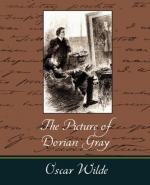When he reached home, he found his servant waiting up for him. He sent him to bed, and threw himself down on the sofa in the library, and began to think over some of the things that Lord Henry had said to him.
Was it really true that one could never change? He felt a wild longing for the unstained purity of his boyhood— his rose-white boyhood, as Lord Henry had once called it. He knew that he had tarnished himself, filled his mind with corruption and given horror to his fancy; that he had been an evil influence to others, and had experienced a terrible joy in being so; and that of the lives that had crossed his own, it had been the fairest and the most full of promise that he had brought to shame. But was it all irretrievable? Was there no hope for him?
Ah! in what a monstrous moment of pride and passion he had prayed that the portrait should bear the burden of his days, and he keep the unsullied splendour of eternal youth! All his failure had been due to that. Better for him that each sin of his life had brought its sure swift penalty along with it. There was purification in punishment. Not “Forgive us our sins” but “Smite us for our iniquities” should be the prayer of man to a most just God.
The curiously carved mirror that Lord Henry had given to him, so many years ago now, was standing on the table, and the white-limbed Cupids laughed round it as of old. He took it up, as he had done on that night of horror when he had first noted the change in the fatal picture, and with wild, tear-dimmed eyes looked into its polished shield. Once, some one who had terribly loved him had written to him a mad letter, ending with these idolatrous words: “The world is changed because you are made of ivory and gold. The curves of your lips rewrite history.” The phrases came back to his memory, and he repeated them over and over to himself. Then he loathed his own beauty, and flinging the mirror on the floor, crushed it into silver splinters beneath his heel. It was his beauty that had ruined him, his beauty and the youth that he had prayed for. But for those two things, his life might have been free from stain. His beauty had been to him but a mask, his youth but a mockery. What was youth at best? A green, an unripe time, a time of shallow moods, and sickly thoughts. Why had he worn its livery? Youth had spoiled him.
It was better not to think of the past. Nothing could alter that. It was of himself, and of his own future, that he had to think. James Vane was hidden in a nameless grave in Selby churchyard. Alan Campbell had shot himself one night in his laboratory, but had not revealed the secret that he had been forced to know. The excitement, such as it was, over Basil Hallward’s disappearance would soon pass away. It was already waning. He was perfectly safe there. Nor, indeed, was it the death of Basil Hallward that weighed most upon his mind. It was the living death of his own soul that troubled




